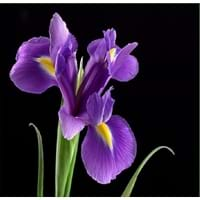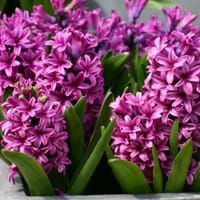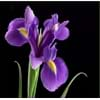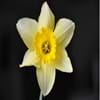Color
Blue, Orange, Pink, Purple, White, Yellow
Blue, Orange, Pink, Purple, Red, White, Yellow
Color Meaning
Blue - Peace and Serenity, Orange - Satisfaction and Passion, Pink - Sensitivity and Love, Purple - Elegance and Pride, White - Purity and Innocence, Yellow - Happiness and Friendship
Blue - Peace and Serenity, Orange - Satisfaction and Passion, Pink - Sensitivity and Love, Purple - Elegance and Pride, Red - Courage, Desire and Love, White - Purity and Innocence, Yellow - Happiness and Friendship
Line
Not Available
Not Available
Silhouette
Not Available
Not Available
Blossom Texture
Not Available
Not Available
Form
Not Available
Not Available
Sunlight
Full Sun, Part Sun
Full Sun, Part Sun
Type of Soil
Any Soil, Loamy, Sandy
Loamy
Essential Fertilizers
Lime stone, Nitrogen
Lime stone
Common Pests and Diseases
List of Pests
Aphids, Nematodes, Slugs
Aphids
List of Diseases
Nematodes
Gray Molds
Bloom Time
All Summer Season, Fall Season, Spring Season
Spring Season
Origin
Asia, Europe, United States
Iran, Iraq, Mediterranean Region, Turkmenistan
Interesting Facts of
- In Greek mythology Iris is called the goddess of rainbow, as this flower comes in various colors just as rainbow.
- The purple iris is the Tennessee's state flower.
- Unattached to the bottom, Water Hyacinths are the only large aquatic plants that float on the water.
- They float on water by the bubbles trapped by roots and air spaces in the leaf stalks.
Lifespan
Perennials - a plant that lives for three or more years
Perennials - a plant that lives for three or more years
Habit
Herbs, Shrubs
Shrubs
Uses
Not Available
Not Available
Health Benefits
Best remedy for Cough & Cold, Treats rheumatism
improves the functioning of the lungs, kidneys, and stomach, Regulates the Menstruation cycle
Medicinal Uses
Have diuretic properties, prevents dryness and flaky skin
Acts as an anti-inflammatory, It is Antibacterial, Unknown
Culinary Uses
NA
Used in salads, soups and sandwiches
Cosmetic Uses
Best remedy for dandruff, Softens skin, Used in Perfumes
Good for Hair growth, Lightens the skin, Softens skin, Used in Perfumes
Occasional Uses
Anniversary, Wedding
Birth Day, Decoration, Wedding
Allergy
Abdominal Pain, Itching, Itchy eyes, Nausea, Vomoting
dry or cracked skin, Itching
Scientific Name
Iris Versicolor
Hyacinthus
Sub kingdom
Tracheobionta
Tracheobionta
Super Division
Spermatophyte
Spermatophyte
Division
Magnoliophyta
Magnoliophyta
Class
Liliopsida
Liliopsida
Family
Iridaceae
Pontederiaceae
Sub Family
Iridoideae
Scilloideae
Genus
Not Available
Not Available
Number of Species
Not Available
Not Available
More about Iris and Hyacinth Facts and color
You must be curious to know more about Iris and Hyacinth facts and color. flowers.comparespecies.com will let you know all the Interesting Facts about Iris and Hyacinth. Iris comes in Blue, Orange, Pink, Purple, White, Yellow colors whereas Hyacinth flowers are with Blue, Orange, Pink, Purple, Red, White, Yellow colors. Other Iris and Hyacinth facts will definitely amuse you.
Iris and Hyacinth growing conditions
Absolute growing condition is the only key to keep plants in good health and in good shape. Let’s learn about essential Iris and Hyacinth growing conditions. Iris requires Full Sun, Part Sun and Enough watering with 6.80 of Any Soil, Loamy, Sandy soil. Hyacinth needs Full Sun, Part Sun and Enough watering with 6.50 of Loamy soil. Get other Iris and Hyacinth facts in the sections below.
Iris and Hyacinth Facts
Want to know about Iris and Hyacinth facts? Get all the Iris and Hyacinth facts here.
Iris and Hyacinth Classification
After knowing about various Iris and Hyacinth facts, let's study their classification. Based on genetic and physical features, Iris and Hyacinth classification starts with knowing their scientific name. The scientific name of Iris and Hyacinth is Iris Versicolor and Hyacinthus respectively. Iris belongs to Iridaceae family whereas Hyacinth falls under Pontederiaceae family. Also check out Flowers by Color so as to plant colorful aroma in the garden.





